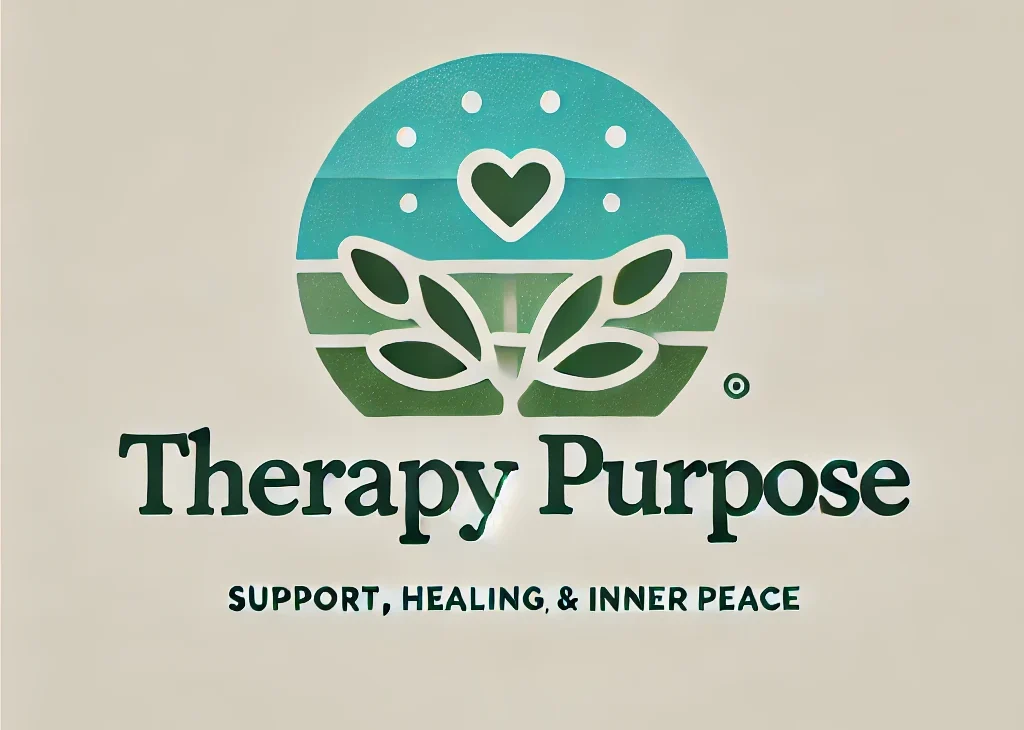In today’s fast-paced world, maintaining a healthy relationship can be challenging. Couples therapy offers various methods to strengthen your bond and enhance communication. By understanding different approaches, you can choose the best path to navigate conflicts and deepen your connection. From Cognitive Behavioral Therapy to Emotionally Focused Therapy and mindfulness practices, each method provides unique tools for growth. Embracing couples therapy not only helps you address immediate concerns but also fosters long-term resilience in your relationship. Discover how these strategies can transform your partnership for the better.
Understanding Couples Therapy
Couples Therapy represents a proactive approach to improving relationships. Essentially, it serves as a safe space for partners to explore their challenges, communication styles, and emotional needs. Here’s an overview of key aspects of Couples Therapy:
- Purpose: The primary goal is to strengthen the emotional bond between partners, helping them navigate conflicts effectively.
- Therapist’s Role: A trained therapist guides discussions, offering insights and tools tailored to each couple’s unique dynamics.
- Methods: Couples Therapy often employs various techniques, such as role-playing, communication exercises, and homework assignments.
Key Types of Couples Therapy
| Method | Description | Goal |
|---|---|---|
| Cognitive Behavioral Therapy | Focuses on changing negative thought patterns | Enhance communication and problem-solving abilities |
| Emotionally Focused Therapy | Strengthens emotional connections | Foster attachment and trust |
| Imago Relationship Therapy | Encourages empathy and understanding | Deepen relational intimacy |
By understanding Couples Therapy, you can better appreciate its significance and the potential it holds for fostering healthier, more fulfilling relationships. With the right approach, it can lead to more profound connections and effective conflict resolution.
The Importance of Communication in Relationships
Effective communication serves as the backbone of any successful relationship. In the context of Couples Therapy, understanding and improving communication patterns can lead to significant breakthroughs. Here are some key aspects to consider:
Expression of Feelings: Openly sharing emotions helps partners understand each other better. By expressing what you feel, you can reduce misunderstandings and build intimacy.
Active Listening: Practicing active listening ensures both partners feel heard. Try to:
- Maintain eye contact
- Nod to indicate understanding
- Reflect back what you’ve heard
Constructive Feedback: Rather than criticizing, provide feedback that focuses on behavior and feelings. Use “I” statements, such as “I feel…” instead of “You always…”
Non-verbal Cues: Pay attention to body language, facial expressions, and tone of voice. These non-verbal signals often communicate more than words.
Taking these elements into account during Couples Therapy can enhance communication and thereby strengthen the relationship. By focusing on improving communication skills, partners can foster a deeper connection and resolve conflicts more effectively.
Exploring Cognitive Behavioral Therapy Techniques
Cognitive Behavioral Therapy (CBT) offers effective techniques within the realm of Couples Therapy to help partners manage their thoughts and feelings more constructively. By focusing on changing negative thought patterns, CBT fosters healthier communication and connection. Here’s how these techniques can be beneficial:
Identifying Negative Thoughts: Couples learn to recognize harmful beliefs about themselves and each other. This awareness is the first step in changing these perceptions.
Reframing Thoughts: Partners practice substituting negative thoughts with positive ones, encouraging a supportive environment.
Communication Skills: CBT teaches improved communication strategies, allowing couples to express their needs and concerns clearly.
Behavioral Assignments: Couples may engage in exercises that promote positive interactions and reinforce good behaviors.
Comparing CBT to traditional therapy methods:
| Feature | CBT | Traditional Therapy |
|---|---|---|
| Focus on Thoughts | Yes | No |
| Homework Assignments | Yes | Rarely |
| Time-Limited Sessions | Yes | Often Open-Ended |
| Structured Approach | Yes | More Exploratory |
By incorporating CBT into Couples Therapy, partners can cultivate a healthier relationship dynamic, leading to lasting improvements.
The Role of Emotionally Focused Therapy
Emotionally Focused Therapy (EFT) plays a significant role in Couples Therapy, focusing on the emotional bonds between partners. It helps couples identify, understand, and transform their emotional responses to one another, leading to a stronger connection. Here’s how EFT contributes to healthier relationships:
- Identification of Attachment Styles: EFT emphasizes recognizing each partner’s attachment style, which often influences how they interact during conflicts.
- Emotional Awareness: Couples learn to express their feelings and vulnerabilities openly, fostering empathy and understanding.
- Reconstructing Interactions: Therapy sessions encourage couples to change negative interaction cycles by practicing more supportive responses.
Comparison Table: EFT vs. Traditional Couples Therapy
| Aspect | Emotionally Focused Therapy | Traditional Couples Therapy |
|---|---|---|
| Focus | Emotional bonds | Problem-solving and communication |
| Approach | Emotion-driven interactions | Behavioral assessments |
| Goal | Strengthening attachment | Resolving conflicts |
| Duration | Typically short-term | May vary by couple |
In conclusion, incorporating Couples Therapy, particularly EFT, can enhance emotional intimacy and create deeper connections, ultimately leading to a more fulfilling relationship.
Using Imago Relationship Therapy for Deeper Connections
Imago Relationship Therapy (IRT) is a transformative approach in couples therapy that enhances emotional intimacy and connection. By fostering deep understanding between partners, IRT helps couples explore their childhood experiences and how these affect their current relationships. Here are some key components of Imago Therapy:
- Dialogue Techniques: Couples engage in structured dialogue, which promotes active listening and empathy.
- Identifying Patterns: This method encourages partners to recognize recurring patterns and conflicts, leading to greater self-awareness.
- Creating a Vision: Couples work together to create a relationship vision that aligns with both partners’ needs and desires.
Why Choose IRT?
Imago Relationship Therapy offers unique benefits compared to other therapeutic approaches:
| Feature | Imago Therapy | Traditional Therapy |
|---|---|---|
| Focus on Childhood Impact | Yes | Limited |
| Structured Communication | Yes | Varies |
| Emphasis on Empathy | Strong | Moderate |
Overall, Imago Relationship Therapy empowers couples to develop deeper connections by understanding each other’s emotional triggers. As a result, they can cultivate a more fulfilling and harmonious relationship. Embrace IRT as part of your couples therapy journey to strengthen your bond and enhance your partnership.
Incorporating Mindfulness and Meditation Practices
Incorporating mindfulness and meditation into Couples Therapy can significantly enhance your relationship. These practices promote awareness and emotional regulation, fostering a deeper connection between partners. Here’s how you can implement them effectively:
Mindfulness Exercises: Engage in activities like mindful breathing or body scans to heighten awareness of your thoughts and feelings. This helps couples understand each other better.
Daily Check-Ins: Set aside time each day to share your feelings and experiences. A simple practice of taking turns to speak without interruption can improve communication.
Meditation Together: Schedule regular meditation sessions as a couple. This shared experience cultivates intimacy and mutual respect.
Visualization Techniques: Use guided imagery during meditation to envision positive outcomes in your relationship, reinforcing your commitment to one another.
These practices enhance emotional safety and reduce stress, creating a nurturing environment for change. Ultimately, integrating mindfulness and meditation into Couples Therapy can lead to more resilient and harmonious relationships.
Benefits of Art and Play Therapy in Couples Counseling
Art and play therapy offer unique avenues for communication and connection in Couples Therapy. These methods allow couples to express emotions and thoughts creatively, fostering a deeper understanding of each other. Here are some benefits:
- Enhanced Communication: Engaging in creative activities breaks down barriers, encouraging couples to share feelings they might struggle to articulate verbally.
- Stress Relief: Both art and play provide a fun, light-hearted approach, reducing tension and anxiety often present in counseling.
- Non-Verbal Expression: Through art, couples can express feelings that words may not adequately convey, illuminating underlying issues.
- Increased Empathy: Participating in creative activities together encourages partners to see the world from each other’s perspectives.
Comparison of Therapy Methods:
| Aspect | Art and Play Therapy | Traditional Talk Therapy |
|---|---|---|
| Communication Style | Creative and expressive | Verbal and analytical |
| Emotional Release | High | Moderate |
| Engagement Level | High (fun activities) | Variable |
Incorporating art and play in Couples Therapy enriches the emotional landscape, helping partners connect on a more profound level.
Integrating Narrative Therapy to Reframe Relationship Stories
Narrative therapy plays a vital role in Couples Therapy by helping partners reshape their personal and shared stories. This therapeutic approach encourages couples to view their relationship from a different perspective, empowering them to challenge negative narratives and create healthier interactions. Here’s how narrative therapy can make a difference:
Externalizing Problems: Couples learn to separate their issues from their identities, viewing challenges as external obstacles rather than personal flaws.
Identifying Patterns: By examining their relationship histories, partners can uncover repetitive patterns and understand how these influence current dynamics.
Re-authoring Stories: Couples work collaboratively to rewrite negative narratives into positive ones, highlighting their strengths and achievements as a unit.
Comparison of Traditional vs. Narrative Therapy in Couples Therapy
| Aspect | Traditional Therapy | Narrative Therapy |
|---|---|---|
| Focus | Present issues and solutions | Life stories and perceptions |
| Approach | Problem-solving | Collaborative storytelling |
| Empowerment | Therapist-led solutions | Client-driven narrative change |
| Goal | Resolving conflicts | Reframing and personal growth |
Incorporating narrative therapy into Couples Therapy fosters deeper understanding and connection, allowing partners to move forward with renewed hope and insight.
The Impact of Online Therapy Platforms
In recent years, Couples Therapy has adapted to the digital age, making it more accessible and convenient through online platforms. Here are some key benefits of utilizing these platforms:
Accessibility: Couples can easily connect with therapists from the comfort of their home, eliminating travel time and increasing the likelihood of attendance.
Flexibility: Online booking systems allow couples to choose appointments that fit their schedules, accommodating busy lives.
Variety of Options: Numerous platforms offer different types of therapists, enabling couples to find the right match for their Couples Therapy needs.
Comfort Level: Many people feel more at ease discussing sensitive topics in a familiar environment, leading to more open communication.
Cost-Effectiveness: Online therapy often provides more affordable options compared to traditional in-person sessions.
When choosing Couples Therapy, consider the impact of these online platforms on your relationship. Evaluating factors such as accessibility, flexibility, and comfort can significantly enhance the therapeutic experience, helping you and your partner strengthen your bond effectively.
Choosing the Right Method for Your Relationship Needs
Selecting the appropriate method in Couples Therapy can significantly enhance the effectiveness of your sessions. Each technique offers unique benefits, so consider the following factors to find what suits you best:
Communication Style: Determine how you and your partner communicate. Some methods, like Emotionally Focused Therapy, focus heavily on emotional expression, while Cognitive Behavioral Therapy emphasizes practical strategies.
Relationship Goals: Identify your objectives. Are you looking to resolve conflicts, deepen intimacy, or manage stress? Choosing Couples Therapy tailored to your goals can lead to better outcomes.
Compatibility with Therapist: Ensure that the therapist’s approach aligns with both partners’ comfort levels. Different therapists may specialize in various techniques, from traditional talk therapy to more modern approaches like Imago Therapy.
Flexibility of Techniques: Consider a therapy style that integrates multiple methods. This adaptability allows for a more personalized experience that can address various challenges over time.
Ultimately, engaging in a conversation about your needs with your partner can help you choose a Couples Therapy method that resonates with both of you, enhancing your journey toward a stronger relationship.


